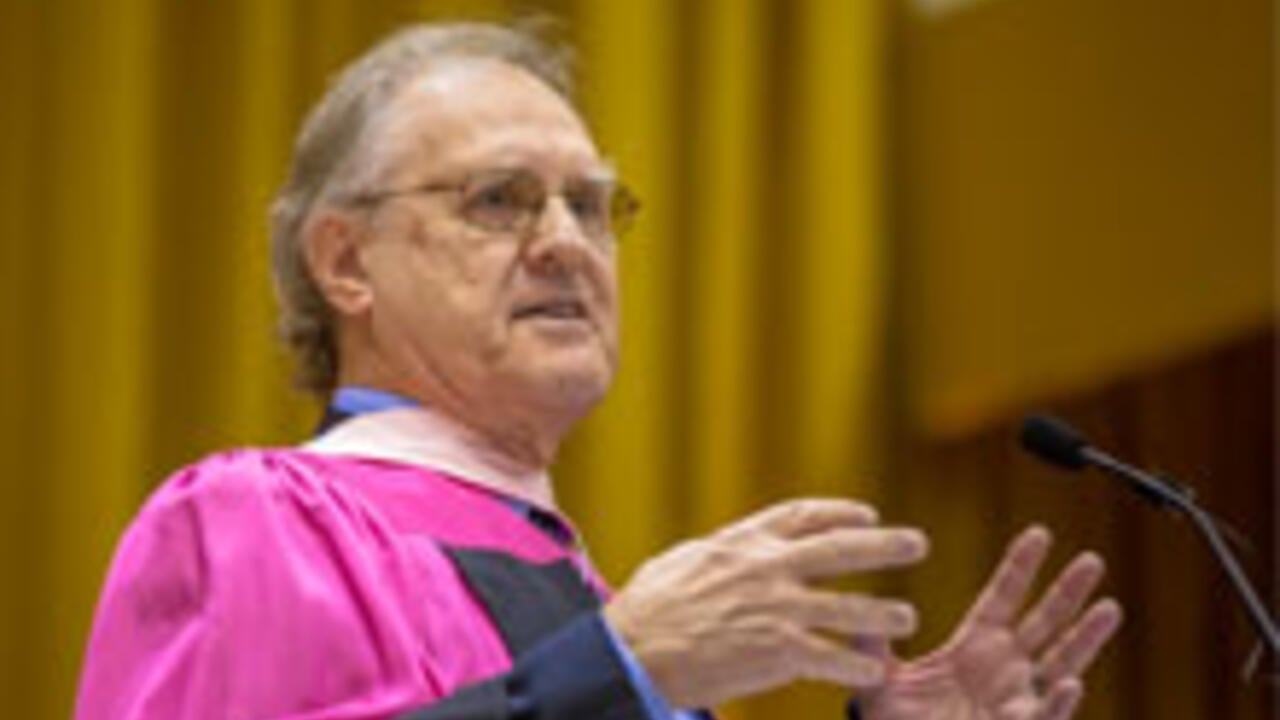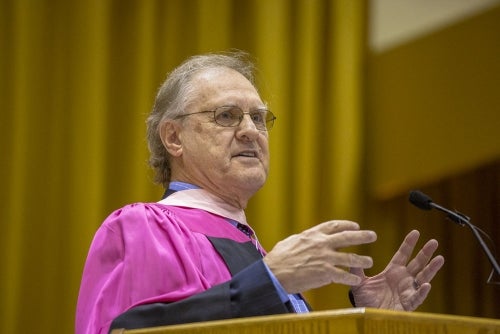
Distinguished humanitarian addresses convocation
Stephen Lewis, global leader in the fight against AIDS, speaks about the contributions university graduates make to the world

Stephen Lewis, global leader in the fight against AIDS, speaks about the contributions university graduates make to the world
By Staff Communications and Public Affairs
Humanitarian Stephen Lewis is among the honourees at the University of Waterloo’s 107th convocation, where more than 2,300 students will receive degrees this week.
Lewis, co-director of AIDS-Free World, received an honorary Doctor of Laws on Friday at 10 a.m., and addressed convocation about the contributions university graduates make to the world. AIDS-Free World is an international advocacy organization working to halt the spread of HIV and helping those already affected.
He is founder of the Stephen Lewis Foundation, a charitable organization dedicated to the fight against HIV/AIDS in Africa. Among his other accomplishments, Lewis was UN special envoy for HIV/AIDS in Africa, deputy executive director of UNICEF, and Canada’s ambassador to the United Nations. He is also a Companion of the Order of Canada, the country's highest honour for lifetime achievement.
More than 1,300 undergraduate degrees and 1,000 graduate degrees will be handed out at ceremonies taking place this Friday and Saturday.
Other highlights of the convocation ceremonies include:

Read more
Sport and Recreation Management student Diane Choi embarks on co-op term with the Canadian Olympic Committee

Read more
Redefining capstone learning by bringing students, faculty and community partners together to tackle real-world challenges

Read more
How machine learning empowers collaboration between computer science, math and medical research
The University of Waterloo acknowledges that much of our work takes place on the traditional territory of the Neutral, Anishinaabeg, and Haudenosaunee peoples. Our main campus is situated on the Haldimand Tract, the land granted to the Six Nations that includes six miles on each side of the Grand River. Our active work toward reconciliation takes place across our campuses through research, learning, teaching, and community building, and is co-ordinated within the Office of Indigenous Relations.